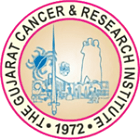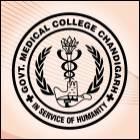- Home
- Courses
- Predictors
- Packages
- About
- Login
- Contact
- Near NRR Hospital, Thammenahalli Village, Bengaluru, Karnataka 560 090
- +91 8904151144
- cgmanagement00@gmail.com
Content Writer: Shubham S Nimje
Published on: Tue Jan 09 2024Updated on: Tue Jan 09 2024
Introduction: Embarking on the journey to become a medical professional is a significant decision that opens doors to a world of learning, healing, and serving humanity. The Bachelor of Medicine, Bachelor of Surgery (MBBS) program stands as the fundamental stepping stone toward a fulfilling career in medicine. From understanding its core elements to navigating the admission process, exploring top colleges, and delving into post-graduation possibilities, this guide covers every aspect of MBBS.
The MBBS degree is an undergraduate program designed to educate students in all facets of medicine and surgery. It equips aspiring doctors with the foundational knowledge, practical skills, and clinical training essential to practice medicine professionally.
The MBBS curriculum is a comprehensive blend of theoretical learning and practical experiences. The course typically spans over five and a half years, including a one-year mandatory internship. Subjects encompass Anatomy, Physiology, Biochemistry, Pharmacology, Pathology, Microbiology, Forensic Medicine, Community Medicine, and more.
Numerous textbooks aid in mastering these subjects, including “Gray’s Anatomy,” “Robbins and Cotran Pathologic Basis of Disease,” and “Harrison’s Principles of Internal Medicine.”
The subjects are broadly categorized into Pre-Clinical, Para-Clinical, and Clinical phases, each focusing on specific aspects of medical education.
Aspiring MBBS students in India need to meet eligibility criteria, including completing 10+2 with Physics, Chemistry, Biology/Biotechnology, and English. They must also qualify in national or state-level entrance exams.
The National Eligibility cum Entrance Test (NEET) is a crucial exam for MBBS admission. It is held annually, and staying updated with NEET 2024 dates is vital for aspirants.
The cut-off marks in NEET play a pivotal role in securing admission to esteemed medical colleges. Understanding and aiming for the cut-off is integral for prospective MBBS students.
From the All India Institute of Medical Sciences (AIIMS) to Maulana Azad Medical College in Delhi, Christian Medical College in Vellore, and beyond, India boasts several renowned medical institutions across various states.
Government medical colleges like AIIMS, AFMC, JIPMER, and others consistently rank among the top institutions offering quality education.
Private colleges such as CMC Vellore, Kasturba Medical College, and Manipal College of Medical Sciences also maintain high standards in medical education.
Exploring international options for pursuing MBBS is a popular choice among students. Countries like Russia, Ukraine, China, the Philippines, and Bangladesh offer quality medical education to international students.
After completing MBBS, graduates can choose from various avenues, including pursuing post-graduation in specialized fields like Surgery, Pediatrics, Gynecology, etc., or entering the workforce directly.
The scope for MBBS graduates is vast, ranging from practicing as a general physician to pursuing careers in research, public health, healthcare administration, and more. Opportunities exist in both the public and private sectors, including hospitals, clinics, research institutes, NGOs, and government agencies.
The latter part of the MBBS program involves clinical rotations, where students get hands-on experience in various medical specialties, including Internal Medicine, Surgery, Pediatrics, Obstetrics & Gynecology, Psychiatry, and more. These rotations offer practical exposure and shape students into well-rounded medical professionals.
Apart from textbooks, students often rely on online resources, medical journals, and interactive platforms to supplement their learning. Platforms like PubMed, UpToDate, and various MOOCs (Massive Open Online Courses) provide updated information and opportunities for continued education.
Upon completing MBBS, graduates can opt for a residency program to specialize in a particular field. Specializations could include Cardiology, Orthopedics, Neurology, Dermatology, etc. Residency programs vary in duration, typically lasting from three to seven years, depending on the chosen specialty.
Aside from specialization, pursuing post-graduation courses such as MD (Doctor of Medicine), MS (Master of Surgery), or Diploma courses is common among MBBS graduates. These programs offer in-depth knowledge and expertise in specific medical disciplines.
For those inclined towards research, pursuing a career in academia or medical research institutes is a viable option. This path involves conducting research, publishing papers, and contributing to advancements in the field of medicine.
Studying MBBS abroad exposes students to diverse medical practices, cultures, and healthcare systems. It broadens their perspectives and offers a global outlook. Additionally, some countries offer affordable tuition fees compared to certain private institutions in India.
Adapting to a new environment, language barriers, and adjusting to different healthcare systems can pose challenges for students studying MBBS abroad. Furthermore, ensuring recognition of degrees in one’s home country and meeting eligibility criteria for practice can be additional hurdles.
The integration of technology in medical education, including virtual simulations, telemedicine, AI-assisted diagnostics, and online learning platforms, is revolutionizing the way medical students learn and practice.
Beyond medical knowledge, modern MBBS programs emphasize the development of communication skills, empathy, teamwork, and ethical practices, recognizing the importance of holistic patient care.
A: With the rise of telemedicine, MBBS graduates have opportunities to work remotely, offering consultations and healthcare services through digital platforms.
A: Practical experience through clinical rotations and internships is essential. It helps students apply theoretical knowledge, gain patient interaction skills, and understand the real challenges of healthcare.
A: Yes, MBBS graduates can explore careers in healthcare management, medical writing, pharmaceuticals, health policy, public health, and more.
A: In India, NEET is mandatory for MBBS admission, except for some specific categories and international colleges.
A: The MBBS curriculum is rigorous, requiring dedication, hard work, and a genuine passion for medicine.
A: MBBS graduates can become general practitioners, specialists, surgeons, researchers, academicians, and more.





Copyright © 2023 Career Guidance Management
Design and Developed by CGM